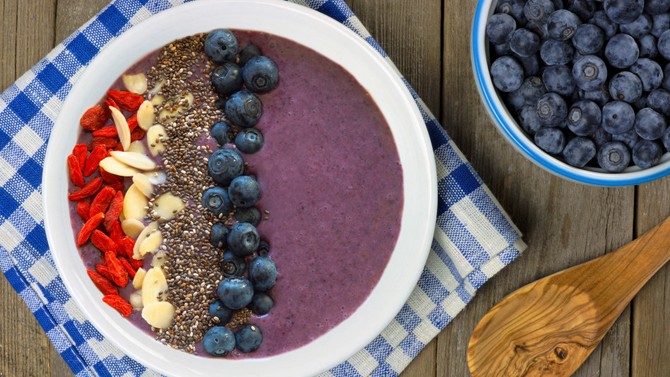5 New Facts About Weight Loss You Need to Know
From the truth about cheat days and vigorous exercise to the scary way hunger affects your behavior.
By Emma Haak

Photo: boggy22/istockphoto
The Difference Between 3 Days of Exercise a Week and 5? It's Not What You Think
The big picture: Going from moderately active to super active doesn't make much difference in your daily calorie burn.
The science: Researchers looked at the daily activity levels and energy expenditure of more than 300 people to see whether higher levels led to a bigger burn. In their study, published earlier this year, they found that going from sedentary to moderately active (think exercising a few days a week and taking the stairs when you can) helped burn about 200 more calories daily, but the jump from moderately active to very active didn't change the daily burn, possibly because our bodies compensate by spending less energy on essential tasks like immune function and cell repair, explains lead author Herman Pontzer, PhD, a professor of anthropology at Hunter College in New York.
What it means for you: You still have to work out, but going to the gym every day probably won't help you shed the weight any faster. (Remember, there are many mental and physical benefits to exercising, beyond the number on the scale.) Do as Pontzer does and "exercise for your health and watch your diet to watch your weight."

Photo: MmeEmil/istockphoto
Cheat Days May Be Worse Than You Thought
The big picture: Inhaling your favorite foods on weekends is bad for more than just your waistline.
The science: As of this year, we know it's bad for our gut bacteria too. Rats who followed a "cycling" diet, where they ate healthy foods for four days then junk foods for three (cookies, cake, meat pies and chips) and repeated that pattern for 16 weeks, had less diversity in their gut bacteria and ended up 18 percent heavier than rats who ate healthfully all the time, found a study in Molecular Nutrition & Food Research. Even more interestingly, by the end of the study, their gut microbes and weight more closely mirrored those of another group of rats who ate nothing but junk the whole time, says Margaret Morris, PhD, lead study author and head of pharmacology at the University of New South Wales' School of Medical Science in Sydney, Australia.
What it means for you: You're not a rat, of course, but Morris notes that diet affects gut bacteria over a similar time frame in rats and humans. Plus, the four-days-healthy/three-days-not-so-much pattern isn't all that dissimilar to how people on a cheat-day diet might eat. This doesn't mean you have to follow a healthful diet 100 percent of the time, because we all know that's unrealistic, but remember that a repeated weekend-long (or longer) splurge can seriously set you back.

Photo: jenifoto/istockphoto
Shifting Your Focus in One Small Way Could Make a Big Difference
The big picture: No surprise that people with high self-control are more likely to reach their weight-loss goals, but a key element of their success is focusing on what they should eat while dieting instead of what they shouldn't.
The science: Baylor University researchers measured subjects' self-control and then asked them to list any food rules they try to follow while dieting and foods they felt they should avoid and those they should consume as part of a healthy diet, in a study published this past summer. "We found that people with high self-esteem approach weight-loss goals in a systemically different way," says lead author Meredith David, PhD, an assistant professor of marketing at Baylor's Hankamer School of Business, in Waco, Texas. They're all about what healthy foods they should eat more of, not which treats and food groups are off-limits. Plus, when they were asked which foods they should avoid on a healthful diet, they didn't list their favorites–they came up with foods they could cut out without making them feel deprived, unlike low-self-control people, who tended to put their absolute favorite foods in the "off-limits" category. (We all know how that usually turns out.)
What it means for you: Even if self-control is not your strong suit, by thinking about eating more of the healthful foods you like rather than shunning the foods you really love, you'll naturally start to crowd out the less nutritionally wise choices.

Photo: Alija/istockphoto
Snacking is Science-Approved. Here's Why.
The big picture: Hunger is a stronger motivator than thirst, our desire for social contact and even fear.
The science: Mice were faced with some very important decisions in a very hungry state. (The researchers behind this just-published study used a technique that turns on neurons that make mice think they're starving.) Would they forgo water when thirsty to get to food? Would they choose food over socializing, even though they're notoriously social animals? And, finally, would they go into an area filled with a predator's odor to get a nibble? The answer was yes to all three, showing that "there are very few mechanisms that can overcome our need for food," says Michael Krashes, PhD, lead study author and investigator with the National Institutes of Health. Like mice, we're also social creatures, and we have the very same neurons in our brains that drove these mice to their hungry state, says Krashes, so you'd likely see similar results in humans.
What it means for you: Don't walk past dark alleys with doughnut shops at the end when you're hungry. (We kid. Kind of.) This research is all the more reason, though, to listen to your body's hunger signals to keep your food intake steady rather than skipping meals. It may also help explain why nothing else seems to matter when you're in need of food.

Photo: stevecoleimages/istockphoto
Your Body Will Thank You for Dropping This Amount of Weight
The big picture: Losing just 5 percent of your body weight could help lower your risk for type 2 diabetes and cardiovascular disease.
The science: Obese people who shed 5 percent of their body weight (around 12 pounds) improved their insulin sensitivity, decreased their total body fat, including hard-to-lose abdominal and liver fat, and decreased their blood pressure, according to 2016 research in Cell Metabolism. Those benefits continued to mount if they went past the 5 percent marker, says Sam Klein, PhD, professor of medicine and nutritional science at Washington University School of Medicine in St. Louis.
What it means for you: This study was done on obese people, and results for non-obese people may be less dramatic. Still, you'll likely see some improvement in important health markers like abdominal fat and insulin sensitivity from a 5 percent weight loss.
Published 10/26/2016

